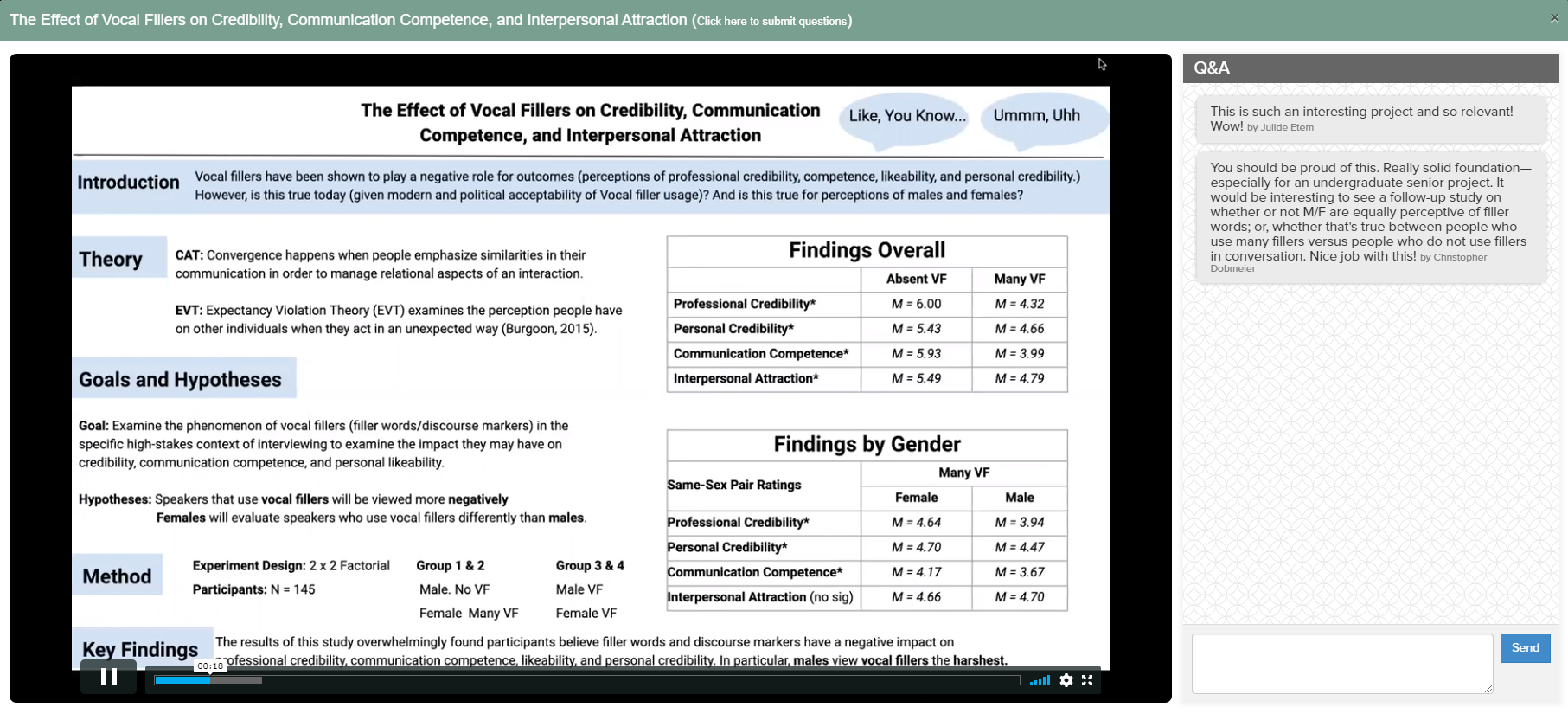Coms Students & Faculty Attend 70th Annual ICA Convention
Communication Studies students and faculty members digitally visited the 70th Annual International Communication Association Conference, which took place on May 20-27, 2020. Although this conference was originally scheduled to take place in Gold Coast Australia, it was moved to an online format to help prevent the spread of COVID-19.
Students and faculty in attendance presented original research and participated in convention panels. Scheduled conference appearances and speaking events included the following:

Current student Kylie Clark presented with Dr. Richard Besel (who is now at Grand Valley State University) in a digital presentation titled: “Full of Trouble and Wild Animals”: A Life History Approach to (Mis)Perceptions of Africa. In summary of their research:
Though a great deal of communication-related research about Africa exists, it is extremely unbalanced, favoring one of two main strands of study: the more popular strand focuses on the content of mediated representations of Africa and the other focuses on audience perceptions of the continent. This study contributes to a correction in this imbalance by using a limited life history approach to understand U.S. young adults’ perceptions of Africa. Results suggest U.S. young adults (1) are informed by a variety of sources with school and movies as the most often recalled, (2) constitute Africa as a “dark” place because it is viewed as “undeveloped” and “unsafe,” (3) mistakenly describe Africa as a single homogenous entity, and (4) often recognize they have limited information about the continent. Implications of these findings are discussed.
Alumni Lea Gikas and Zachary Sutcliffe presented with Dr. Aubrie Adams the results of their senior project in a study titled: The Effect of Vocal Fillers on Credibility, Communication Competence, and Interpersonal Attraction. In summary of their research:
This study examines the impact of vocal fillers on a job candidate’s perceived professional credibility, personal credibility, communication competence, and interpersonal attraction in the context of an interview. Results indicated that vocal fillers had a negative impact on each of the outcome variables in this study (regardless of gender). However, although both males and females evaluated the usage of vocal fillers negatively (in comparison to not using vocal fillers), males listening to candidates using vocal fillers perceived them significantly more negatively than females listening to candidates using vocal fillers for task-oriented variables (professional credibility, personal credibility, and communication competence). This suggests that male evaluators were generally more critical when candidates used vocal fillers in comparison to female evaluators.

